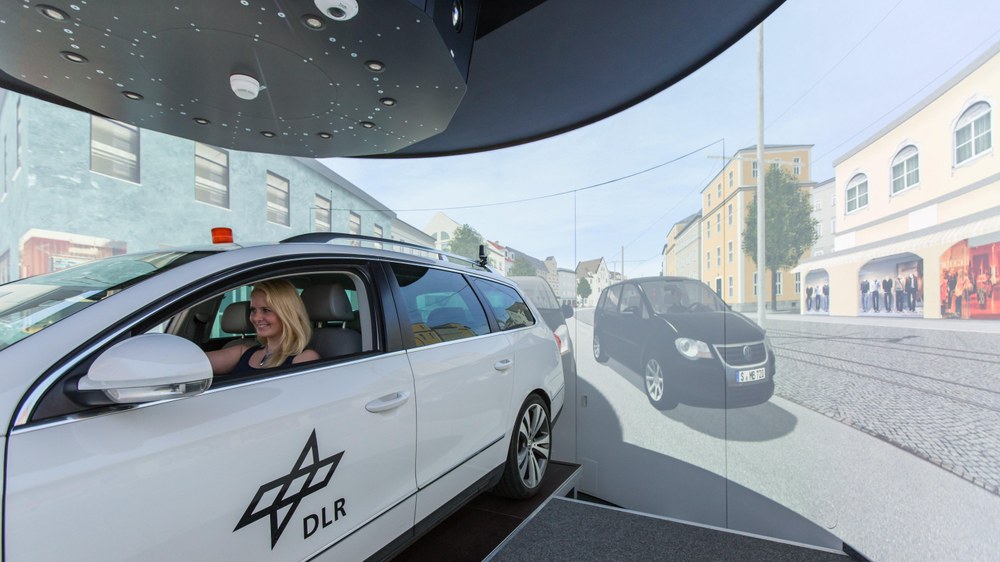Virtual Reality Lab

Virtual Reality Lab – driving simulation with 360-degree representation of a virtual world
Before new technologies related to autonomous driving can be used on public roads, they must first be examined in a safe test environment. The Virtual Reality (VR) Lab offers a highly dynamic and realistic 360-degree simulation for testing and evaluating automation and driver assistance functions.
Image: 1/2, Credit:

The possibility of experiencing a 360-degree representation of a virtual world
In the VR Lab, we investigate modern driver assistance systems and required functionality for their application and future use on public roads.
Image: 2/2, Credit:
The Virtual Reality Lab at the German Aerospace Center (Deutsches Zentrum für Luft- und Raumfahrt; DLR) is a highly dynamic and scalable automotive simulation environment. It offers the possibility of experiencing a 360-degree representation of a virtual world. The flexible integration of different mock-ups and vehicles facilitates the testing and evaluation of automation and assistance functions by means of repeatable and reproducible scenarios. It can be linked up to other simulators and infrastructures run by the DLR Institute of Transportation Systems using a shared software framework.
Fields of application
- The Virtual Reality Lab is used to develop and evaluate driver assistance and automation systems.
- New approaches to assistance and automation can be tested and optimised cost-effectively at the Lab.
- Besides purely technical evaluation, the Lab also focuses on human-centred assessment, known as driver acceptance analysis, and the investigation of psychological issues – for example by looking at driver modelling, human-machine interaction and cognitive behaviour while driving.
- Using repeatable and reproducible scenarios to safeguard assistance systems at an early stage in their development saves time and money, and pre-empts potentially undesirable developments. The option of integrating drivable road vehicles into the Virtual Reality Lab means that it can also be used for hardware-in-the-loop and vehicle-in-the-loop testing.
- The Virtual Laboratory Lab can be linked up to other simulators and infrastructures run by the Institute using a shared network.
Contact
Volker Speelmann
Head of Research Infrastructures
German Aerospace Center (DLR)
Executive Board department for Innovation, Transfer and Research Infrastructure
Linder Höhe, 51147 Cologne
DLR Institute of Transportation Systems
German Aerospace Center (DLR)
Institute of Transportation Systems
Lilienthalplatz 7, 38108 Braunschweig
